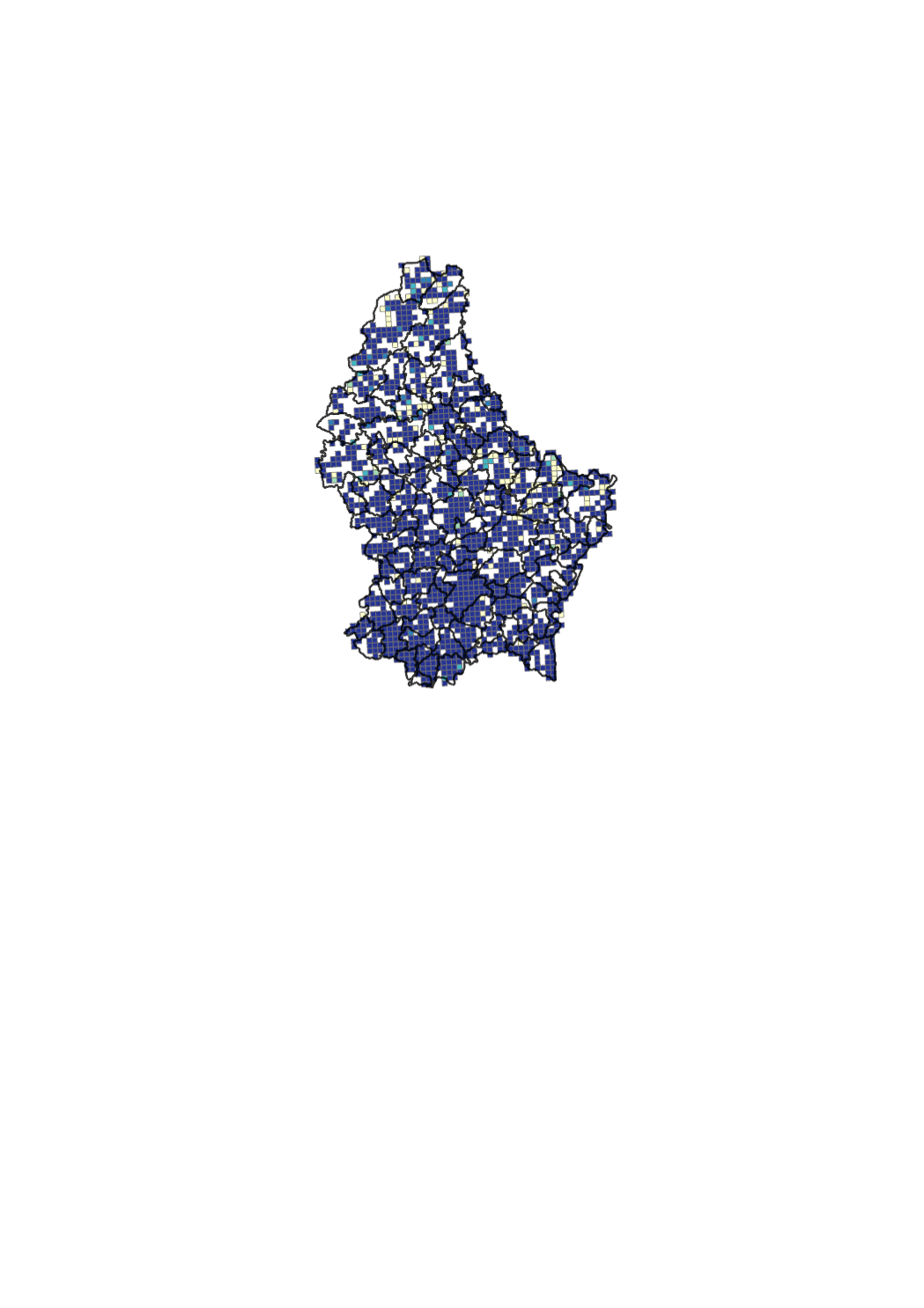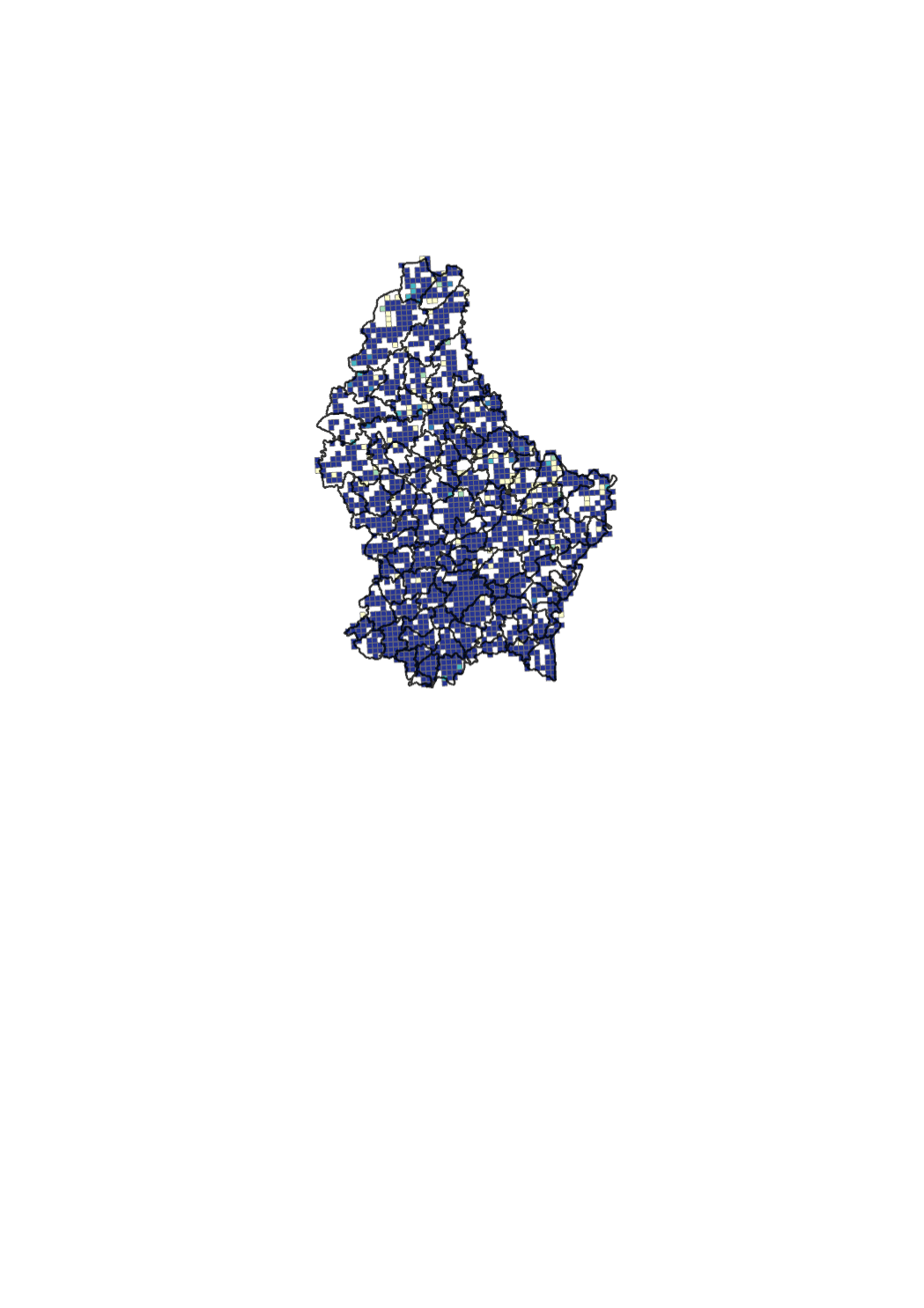Utilities communication
Type of resources
Available actions
Topics
Keywords
Contact for the resource
Provided by
Groups
Years
Representation types
Update frequencies
status
Scale
-

https://data.public.lu/fr/datasets/cadastre-gsm/
-

The cellular phone cadastre shows the location of the base stations for public mobile communication networks < 50 Watt. https://data.public.lu/fr/datasets/cadastre-gsm/
-

Ubiquitous access for citizens and companies to very high speed Internet is key for developing the national economy. Hence, the national strategy for very high-speed networks was elaborated in 2010 [http://www.gouvernement.lu/3938123/2010-strategie-ultrahaut-debit.pdf]. The general objective of the strategy is to position the Grand-Duchy of Luxembourg among the leading broadband countries and to enable citizens, companies and public players to reap the associated socio-economic benefits. The strategy is in line with Europe 2020, a strategy for smart, sustainable and inclusive growth, as well as the Digital Agenda for Europe (http://ec.europa.eu/digital-agenda). In the context of the Digital Agenda, the European Commission encourages broadband mapping exercises (http://www.broadbandmapping.eu/). The broadband mapping indicates the percentage of households that can get fix access to very high-speed Internet, independent of the technology (copper cable, coax cable, optical fibre). The map is based on data provided on a voluntary basis by certain network providers and on estimations based on such data. Speeds are advertised speeds and may vary from actual speeds. <a href='https://download.data.public.lu/resources/carte-de-la-couverture-internet-ultra-haut-debit/20180427-075634/couverture_DEC_2017.xlsx'>Link to the data</a> <a href='https://download.data.public.lu/resources/carte-de-la-couverture-internet-ultra-haut-debit/20180427-080207/2017_12_uhd_100MBit.pdf'>Link to the PDF map</a>
-

Ubiquitous access for citizens and companies to very high speed Internet is key for developing the national economy. Hence, the national strategy for very high-speed networks was elaborated in 2010 [http://www.gouvernement.lu/3938123/2010-strategie-ultrahaut-debit.pdf]. The general objective of the strategy is to position the Grand-Duchy of Luxembourg among the leading broadband countries and to enable citizens, companies and public players to reap the associated socio-economic benefits. The strategy is in line with Europe 2020, a strategy for smart, sustainable and inclusive growth, as well as the Digital Agenda for Europe (http://ec.europa.eu/digital-agenda). In the context of the Digital Agenda, the European Commission encourages broadband mapping exercises (http://www.broadbandmapping.eu/). The broadband mapping indicates the percentage of households that can get fix access to very high-speed Internet, independent of the technology (copper cable, coax cable, optical fibre). The map is based on data provided on a voluntary basis by certain network providers and on estimations based on such data. Speeds are advertised speeds and may vary from actual speeds. <a href='https://download.data.public.lu/resources/carte-de-la-couverture-internet-ultra-haut-debit/20180427-075634/couverture_DEC_2017.xlsx'>Link to the data</a> <a href='https://download.data.public.lu/resources/carte-de-la-couverture-internet-ultra-haut-debit/20180427-080236/2017_12_uhd_30MBit.pdf'>Link to the PDF map</a>
-

Ubiquitous access for citizens and companies to very high speed Internet is key for developing the national economy. Hence, the national strategy for very high-speed networks was elaborated in 2010 [http://www.gouvernement.lu/3938123/2010-strategie-ultrahaut-debit.pdf]. The general objective of the strategy is to position the Grand-Duchy of Luxembourg among the leading broadband countries and to enable citizens, companies and public players to reap the associated socio-economic benefits. The strategy is in line with Europe 2020, a strategy for smart, sustainable and inclusive growth, as well as the Digital Agenda for Europe (http://ec.europa.eu/digital-agenda). In the context of the Digital Agenda, the European Commission encourages broadband mapping exercises (http://www.broadbandmapping.eu/). The broadband mapping indicates the percentage of households that can get fix access to very high-speed Internet, independent of the technology (copper cable, coax cable, optical fibre). The map is based on data provided on a voluntary basis by certain network providers and on estimations based on such data. Speeds are advertised speeds and may vary from actual speeds. <a href='https://download.data.public.lu/resources/carte-de-la-couverture-internet-ultra-haut-debit/20180427-075634/couverture_DEC_2017.xlsx'>Link to the data</a> <a href='https://download.data.public.lu/resources/carte-de-la-couverture-internet-ultra-haut-debit/20180427-080035/2017_12_uhd_1Gbit.pdf'>Link to the PDF map</a>
 geocatalogue.geoportail.lu
geocatalogue.geoportail.lu